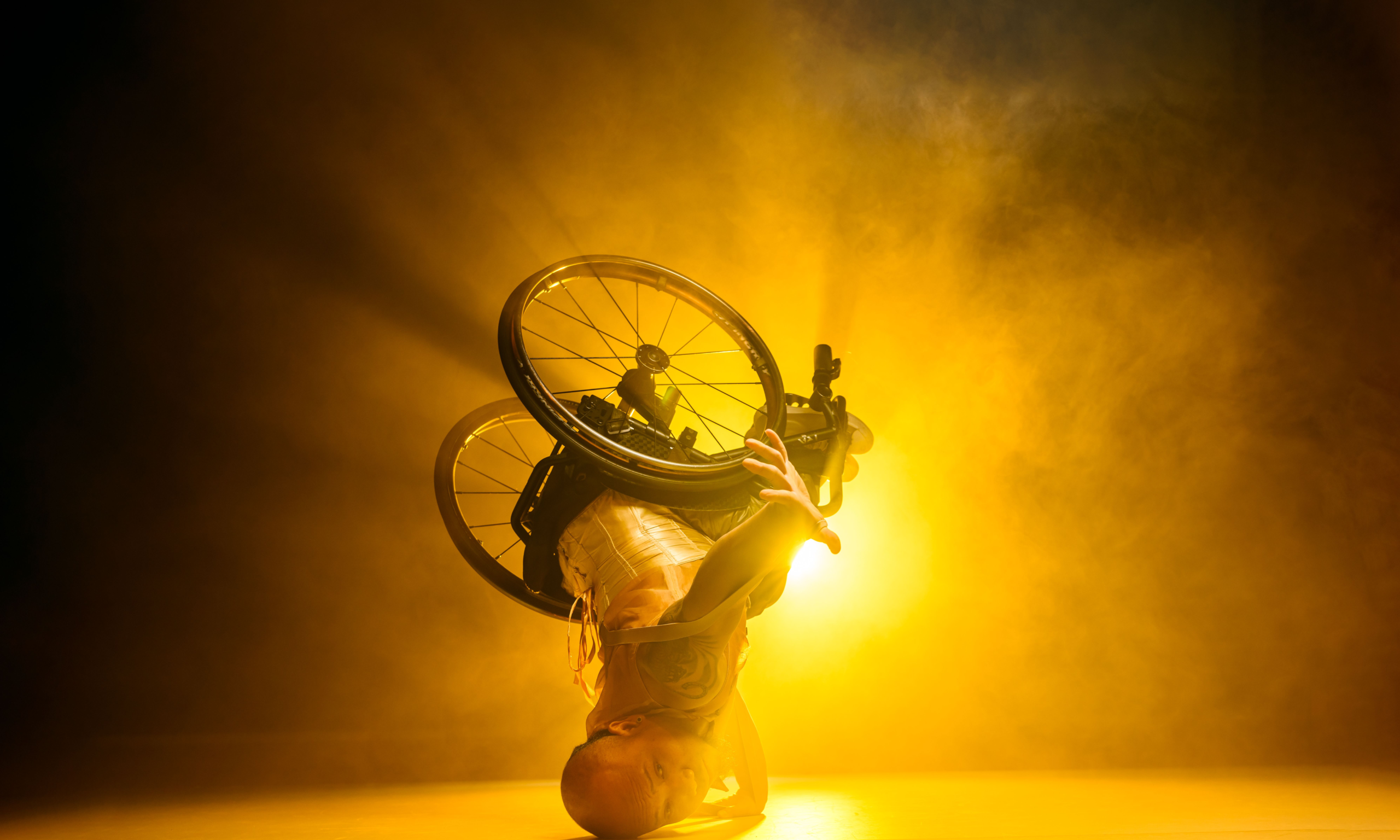Unlimited's organisers say that, 12 years on, the work the festival is doing remains as important as ever
Stopgap Dance Company: Lived Fiction 2024. Christopher Parkes
“I guess the last few years have been quite a complex picture for disabled artists,” reflects Ruth Hardie, head of public programming at London’s Southbank Centre. “I think this is probably the first year that we’ve had the same breadth of work as before the pandemic started.”
Hardie is speaking ahead of this year’s Unlimited festival, which opens at the Southbank Centre on 4 September. The bi-annual event is the UK’s largest celebration of visual and performance art, music, comedy and dance by D/deaf and disabled artists.
Running all day and often well into the evening, this year’s installment has no set theme, instead presenting a broad and dynamic programme which includes Touretteshero's Biscuit Land Cabaret—featuring music, spoken word, dance and more—a screening of the film Silent World by deaf rapper Signkid, and an exhibition by photographer Suzie Larke. This lineup marks the festival's 12th year but, Hardie says, its work remains as pressing as ever.
“It's not about being disabled, it's about great art,” she says. “All of these artists are making great art and have a lot to say, and they deserve to be given a platform at big organisations.”
For 2024 the Southbank Centre has commissioned a number of new works, including Mark Of A Woman by deaf performance artist Chisato Minamimura. The work, which explores the historical, social and cultural relationship between women and tattoos, will be shared through Visual Vernacular—a form of performance that draws on sign language, mime and techniques from theatre—as well as digital animation, kinetic projection and technology allowing visitors to ‘feel’ its music.
Minamimura approaches choreography and performance making from her unique perspective as a Deaf artist, experimenting with and exploring the visualisation of sound and music
Mark Pickthall
For Minamimura, it is important that all audiences, regardless of disability, can experience the work together. “When audiences go to see performances or art, often they are still labelling artists as ‘they’re deaf, ‘they're disabled’,” she says via a sign language interpreter. “But really, I would challenge them to ask what art is, and how that relates to the diversity of the world we live in.”
Sadly this diversity is not always reflected within museums and galleries, where disabled artists remain chronically under-represented. In a 2022 survey conducted by the Southbank Centre, a quarter of Unlimited’s visitors reported that the festival marked the first time they had seen work by a disabled artist. Yet, in the same survey, almost 90% described what they had seen as extraordinary.
This year the festival will also present an extensive programme of free events, including Hope & Ponies, a workshop and installation of banners by Alister Lownie, Katherina Radeva with Nadia Sokolenko—known collectively as Two Destination Language. Handmade from recycled fabric, each banner bears a different definition of hope. Some tackle major issues—war, the climate crisis, politics—while another calls simply for a cup of hot chocolate on a winter’s day.
“There are still a lot of taboos around talking about mental health, it's very silent, it's very invisible,” says Radeva. “We want to make some space to top up your glass of hope.”
"Ponies are simultaneously cute and phenomenally resilient," says Katherina Radeva, explaining the choice of name for her work
Courtesy of the Southbank Centre
This year’s programme also runs well into the evenings, with an event by Disco Neurotico—the club night for those who love to party but who, due to conditions ranging from anxiety to autism, sometimes find the experience difficult. Run by self-described “ageing raver” Byron Vincent, who himself has been diagnosed with ADHD, autism and post-traumatic stress-disorder (PTSD), it is a concept that has proved extremely popular.
In many ways this is unsurprising. There are 16 million disabled people in the UK, including 23% of working-age adults. And the proportion of the population reporting a disability is rising—in 2023 it was up 6 percentage points from 2002/03. Disco Neurotico caters to anyone among this number who may want to let loose in a relaxed space where inclusivity and individuality are prioritised.
On Saturday 7 September, the Southbank Centre will host a silent disco, with guest DJ’s playing disco, funk, pop and soul until 2am, alongside gaming areas and UV painting. For Vincent, his enthusiastic, “neurospicy” audience is one that museums and galleries could engage more easily, were they only to employ an authentic focus on relationship building.
Among others, Disco Neurotico's club night will feature Misery Party’s founding DJ, Aisha Mirza, and “cheeky whomping bass” from Stef Mo
Courtesy of the Southbank Centre
“It's not rocket science,” he says. “If you want to communicate with a community that is historically ostracised, or what the government calls ‘hard to reach’—I hate that phrase—then it’s just about listening to people, working with someone who is knowledgeable about the needs of that community.”
The importance of building long-standing relationships is echoed by Hardie. The head of public programming emphasises that the Southbank Centre engages with D/deaf and disabled communities all year round, and that to do otherwise would make projects like Unlimited tokenistic.
“Unlimited is about having a celebratory, focused moment,“ she says, “and then committing to continuing to support and develop work with those artists.”

